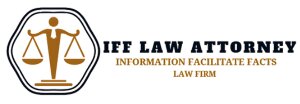Best Job Discrimination Lawyers in Chennai
Share your needs with us, get contacted by law firms.
Free. Takes 2 min.
List of the best lawyers in Chennai, India
About Job Discrimination Law in Chennai, India
Job discrimination refers to the unjust treatment of employees or job applicants based on their personal characteristics such as gender, race, caste, religion, disability, age, marital status, or sexual orientation. In Chennai, India, job discrimination is governed by several key legislations, such as the Indian Constitution, the Indian Penal Code, and the Equal Remuneration Act. These ensure the provision of equal opportunities and prohibit discrimination in all aspects of employment, like hiring, training, promotion, and termination.
Why You May Need a Lawyer
If you believe you've been a victim of job discrimination in Chennai, it's helpful to consult a lawyer who specializes in this area. You may need a lawyer to help you understand the complexities of job discrimination law, gather evidence, file a legal complaint, and represent you in court. Lawyers can also negotiate settlements and ensure your rights are preserved and respected throughout the legal process.
Local Laws Overview
Relevant local laws to job discrimination in Chennai include Article 15 and Article 16 of the Indian Constitution, which prohibits discrimination on grounds of religion, race, caste, sex, or place of birth. The Equal Remuneration Act, 1976 ensures equal pay for equal work, irrespective of sex. The Persons with Disabilities Act, 1995 guarantees non-discrimination in employment for disabled individuals. There are various state legislations as well which specify employer responsibilities and employee rights and safeguard against discrimination.
Frequently Asked Questions
What is considered as job discrimination?
Job discrimination is treating a job applicant or an employee less favorably due to their caste, creed, religion, gender, disability, marital status, age, or sexual orientation throughout the employment cycle.
Who can file a complaint against job discrimination?
Any job applicant or employee who believes they have been discriminated against can file a complaint with the appropriate legal or governmental body.
Where can I file a complaint?
A complaint can be filed with the local Labour Office, the Human Rights Commission, or the Court, depending on the nature of the discrimination.
What evidence do I need to support my complaint?
Any communication records, witness testimonies, differential treatment examples, discriminatory policies, or other relevant documentation can serve as evidence in a job discrimination case. A lawyer can guide you in gathering and presenting evidence.
What remedies are available if job discrimination is proven?
If job discrimination is proven, the remedies include job reinstatement, back pay, promotion, compensation for damages, enforcement of policy changes, etc. The court will determine the remedy based on the specifics of the case.
Additional Resources
You can consult the official websites of the Ministry of Labour and Employment, the National Human Rights Commission, Equal opportunity policy for persons with disabilities, and various non-profit organizations dedicated to workers' rights for more information and support.
Next Steps
If you need legal assistance, it's recommended to seek consultation from a lawyer specialized in employment law in Chennai to understand your rights and viable legal options. Gather any potentially relevant documents or evidence related to the alleged job discrimination and be prepared to discuss your situation in detail. It is crucial to act promptly, as there are generally stipulated time frames within which legal actions must be initiated.
Lawzana helps you find the best lawyers and law firms in Chennai through a curated and pre-screened list of qualified legal professionals. Our platform offers rankings and detailed profiles of attorneys and law firms, allowing you to compare based on practice areas, including Job Discrimination, experience, and client feedback.
Each profile includes a description of the firm's areas of practice, client reviews, team members and partners, year of establishment, spoken languages, office locations, contact information, social media presence, and any published articles or resources. Most firms on our platform speak English and are experienced in both local and international legal matters.
Get a quote from top-rated law firms in Chennai, India — quickly, securely, and without unnecessary hassle.
Disclaimer:
The information provided on this page is for general informational purposes only and does not constitute legal advice. While we strive to ensure the accuracy and relevance of the content, legal information may change over time, and interpretations of the law can vary. You should always consult with a qualified legal professional for advice specific to your situation.
We disclaim all liability for actions taken or not taken based on the content of this page. If you believe any information is incorrect or outdated, please contact us, and we will review and update it where appropriate.










